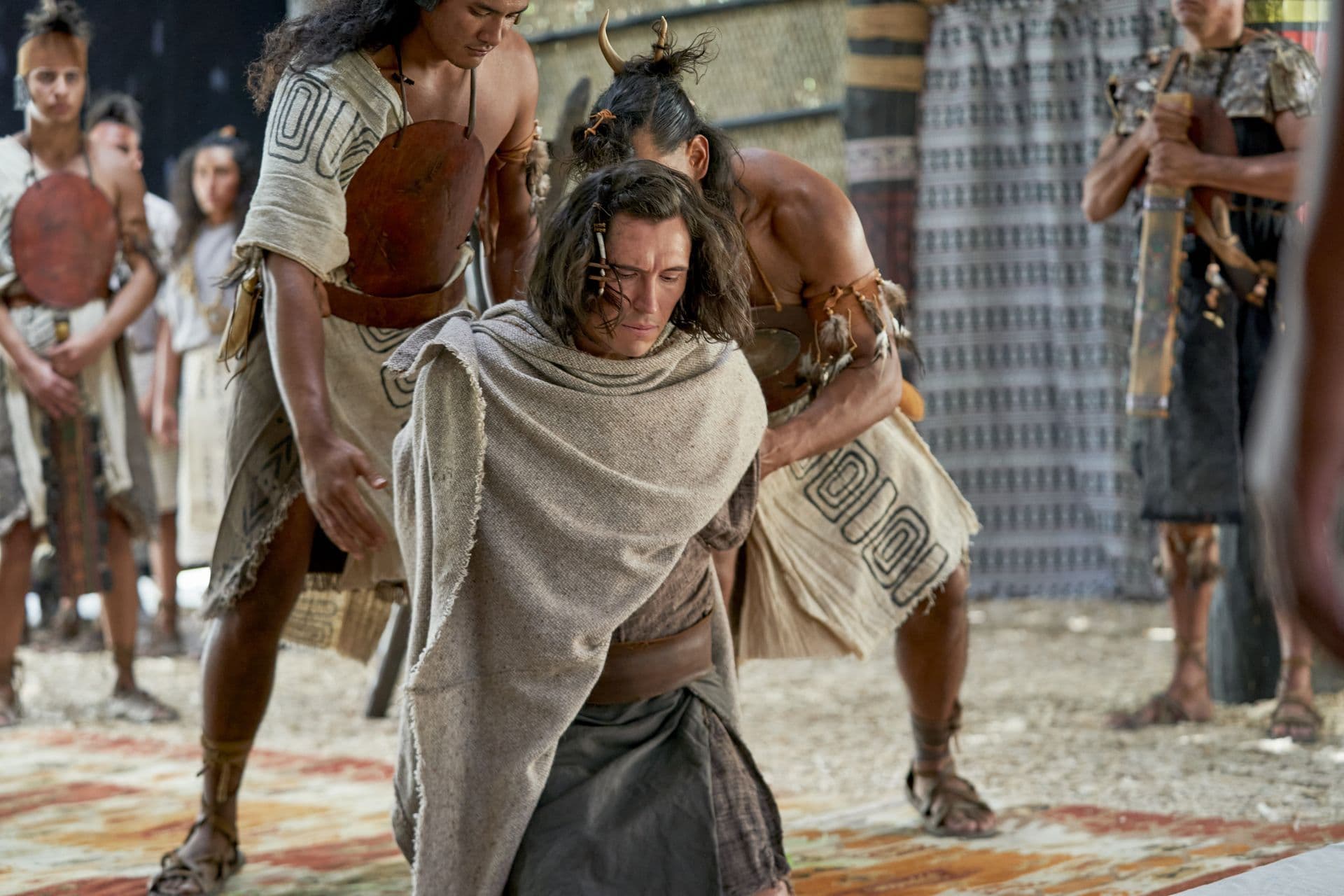Evidence #458 | August 7, 2024
Book of Mormon Evidence: Gloss on Rabbanah
Post contributed by
Scripture Central

Abstract
In the book of Alma, Mormon clarifies that the term Rabbanah means “powerful or great king.” This gloss is consistent with the Semitic root *rbb, which plausibly stands behind the term Rabbanah and can mean “to become great” or “to become powerful.”After defending King Lamoni’s flocks, Ammon went to visit the king, who had become troubled at the implications of Ammon’s success, believing him to be an incarnate deity. In this context, one of the king’s servants said unto Ammon, “Rabbanah, which is, being interpreted, powerful or great king, considering their kings to be powerful; and thus he said unto him: Rabbanah, the king desireth thee to stay” (Alma 18:13).
The explanation following the term Rabbanah is almost certainly an editorial gloss provided by Mormon. Rabbanah likely derives from the Semitic and Hebrew root *rbb, which could mean “to be great, mighty, powerful.”1 Hugh Nibley first noted that this word appears to be Aramaic, citing a Targumic word rabānāʾ that could mean either “chief” or “teacher,” with the former definition being closely related to the idea of being a “powerful or great” leader.2
The plausibility of an Aramaic influence is also noted by Stephen D. Ricks, Paul Y. Hoskisson, Robert F. Smith, and John Gee: “The second a in Rabbanah, rather than the o that would have been the case if the word had been Hebrew and had undergone the so-called ‘Canaanite shift’ … suggests an Aramaicizing tendency at least in the name-giving patterns, or an Aramaic borrowing in the Nephite-Lamanite dialects.3

An example of this type of Canaanite shift appears in the Gospel of John: “Jesus saith unto her, Mary. She turned herself, and saith unto him, Rabboni; which is to say, Master” (John 20:16; emphasis added). It appears Rabboni utilizes the same root as Rabbanah from the Nephite record—hence their similarity—but Rabbanah more closely reflects an Aramaic rendering that isn’t reflected in the New Testament.
An Aramaic influence or borrowing can also explain another aspect of this honorific. According to Ricks et al., “The ah at the end of Rabbanah may be a terminal ’aleph … making the word an emphatic form that could also be used as an Aramaic/Aramaicizing vocative in forms of address.”4 This would plausibly give the title Rabbanah the meaning “O great, mighty one” or even “O great, powerful one” (given the different meanings that *rbb could have).
Mormon’s explanation that the title was to be used for a king is also quite fitting. He tells us that the Lamanites called their kings Rabbanah because they “consider[ed] their kings to be powerful” (Alma 18:13). According to Ricks et al., “In addition to the Aramaic and Hebrew origins of Rabbanah, East Semitic, and particularly Babylonian, also contains examples of the root rbb in analogical constructions.” These sources use *rbb designations for leaders or administrators in specific capacities. For example, the rab banî (or, less frequently attested, rabbānû) was “an administrator of temple property.” A related word, rabiānu, referred to the “mayor, headman.”5
Conclusion
It is possible that Joseph Smith used the gloss on “Rabboni” in John 20:16 as an inspiration for Mormon’s gloss on Rabbanah in Alma 18:13. Yet if that is the case, one might wonder why Joseph didn’t just play it safe by precisely replicating the New Testament form of this term. It should also be noted that the New Testament gloss doesn’t mention the connotations of “great” or “powerful” that are found in Alma 18:13 and are indeed appropriate.

That Mormon’s use of Rabbanah clearly departs from the King James Version’s use of Rabboni, that this adjustment matches an ancient Aramaic form of this term, that Mormon’s gloss (“great” and “powerful”) aligns with the meaning of the term’s ancient root (*rbb), and that this root was indeed used as an honorific title for administrative leaders in ancient Semitic contexts is all quite striking. If Joseph Smith was just shooting into the dark, guessing at an alternate form and additional connotation of Rabboni, he was surprisingly on target.
Stephen D. Ricks, Paul Y. Hoskisson, Robert F. Smith, and John Gee, Dictionary of Proper Names and Foreign Words in the Book of Mormon (Orem, UT: Interpreter Foundation; Salt Lake City, UT: Eborn Books, 2022), s.v. “Rabbanah.”
Matthew L. Bowen, “Rabbanah: Ammon as a Type of Jesus Christ,” in Book of Mormon Insights: Letting God Prevail in Your Life, ed. Kenneth L. Alford, Krystal V. L. Pierce, and Mary Jane Woodger (Provo, UT: BYU Religious Studies Center; Salt Lake City, UT: Deseret Book, 2024), 145.
- 1. Stephen D. Ricks, Paul Y. Hoskisson, Robert F. Smith, and John Gee, Dictionary of Proper Names and Foreign Words in the Book of Mormon (Orem, UT: Interpreter Foundation; Salt Lake City, UT: Eborn Books, 2022), s.v. “Rabbanah;” Matthew L. Bowen, “Rabbanah: Ammon as a Type of Jesus Christ,” in Book of Mormon Insights: Letting God Prevail in Your Life, ed. Kenneth L. Alford, Krystal V. L. Pierce, and Mary Jane Woodger (Provo, UT: BYU Religious Studies Center; Salt Lake City, UT: Deseret Book, 2024), 145.
- 2. Hugh Nibley, Teachings of the Book of Mormon, Semester Two (Provo, UT: FARMS; American Fork, UT: Covenant Communications, 2004): 299; citing Marcus Jastrow, A Dictionary of the Targumim, the Talmud Babli and Yerushalmi, and the Midrashic Literature (New York, NY: Title, 1943), 1444.
- 3. Ricks et al., Dictionary of Proper Names and Foreign Words, s.v. “Rabbanah.” For discussion of Aramaic as a language used among Book of Mormon peoples, see Brian D. Stubbs, Changes in Languages: From Nephi to Now (Blanding, UT: Four Corners Digital Design, 2016), 74–88.
- 4. Ricks et al., Dictionary of Proper Names and Foreign Words, s.v. “Rabbanah.”
- 5. Ricks et al., Dictionary of Proper Names and Foreign Words, s.v. “Rabbanah.”